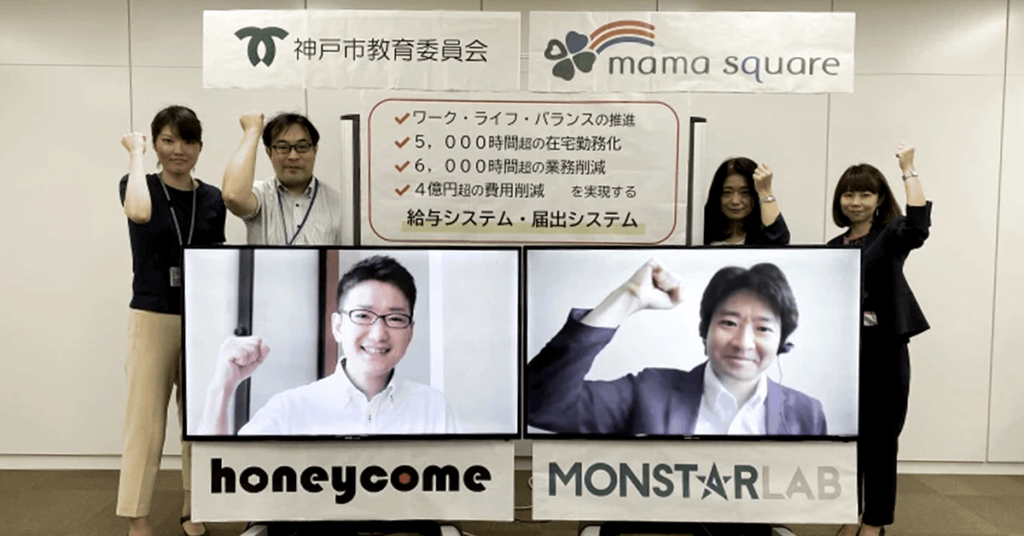ABOUT
Urban Innovation Japan (UIJ) is Kobe City’s initiative to partner with startups and collaboratively solve real issues. It empowers staff to effectively handle growing workloads while staying within strict spending guidelines. The city council turned to Robotic Process Automation (RPA) as a key part of its automation strategy.
THE CHALLENGE
UIJ wanted to drive positive change in Kobe City through digital transformation and the adoption of emerging technologies. The city council was aware of the benefits RPA can bring in terms of cost reduction and increasing efficiency. It wanted to establish a Proof of Concept and became aware that Monstarlab offered a trial that allowed the organization to get started quickly and easily.
THE SOLUTION
UIJ collaborated with Monstarlab, Honeycome Co., Ltd. and Mama Square Co., Ltd. to manage all automation opportunities and implementation processes based on thorough research and design thinking principles.
Prior to automation, employees of Kobe City’s Board of Education had to manually compute the salaries and determine the commuting allowance of faculty and staff, inspecting each paper document submitted to their payroll department. Payroll data had to be manually checked and encoded in spreadsheets using the employees’ personal computers. This office procedure took up 5,492 hours a year.
Beginning in December 2018, it took just six months to go from providing Proof of Concept to implementing the first RPA project. Monstarlab conducted research on improving the efficiency of the city council’s salary payment operations related to determining employees’ commuting allowance. Upon rendering proper workflow documentation and analysis, Monstarlab developed an RPA tool that automates and streamlines this operation, and conducts demonstration experiments. The so-called “allowance calculation robot” reduces the work time significantly and provides highly accurate information, which enables the employees to focus their time on the steps in the process that actually require their critical thinking skills. Monstarlab’s RPA solution reduced 1,953 hours of work over the first year.
The RPA pilot convinced UIJ that RPA could deliver many benefits by optimizing internal processes. Monstarlab then applied the same RPA solution to streamline its work process of determining housing allowance, which accounts for the second-largest amount of work after commuting allowance. In just two months following the initial research and demonstration experiments, the expanded RPA trial demonstrated that it was 96% faster than manual processing and can save additional 1,148 hours of work annually.
Combined with other process automation — such as automating the salary and notification system — RPA saved Kobe City more than 5,000 hours of work over a year and is expected to save the city over ¥400-million if the system is used for five years.
Another example of RPA success occurred in the city council’s medical treatment grant operations. Staff had to visually check and process receipt data for 2.5 million cases a year. These claims often include errors and checking for errors takes a considerable amount of human resources. After organizing and analyzing the work performed by the Kobe City staff, Monstarlab created a tool and conducted a demonstration experiment for the purpose of making the check work shorter and more efficient. Kobe City implemented the “Monstar Robo” tool between July to October 2018 and found out that the receipt checking work could be reduced by up to 459 hours a year.
SCALING RPA RESULTS
Enhanced internal processes, reduced cost, and improved work-life balance are just a few of the RPA advantages that Kobe City has realized. The mentioned automation efforts revealed themselves as extremely scalable, allowing for multiple robots to be easily added or removed depending on work volume. This gave UIJ and Kobe City a baseline for future automation to fully reap key benefits driving RPA implementation across Japan.
References:
